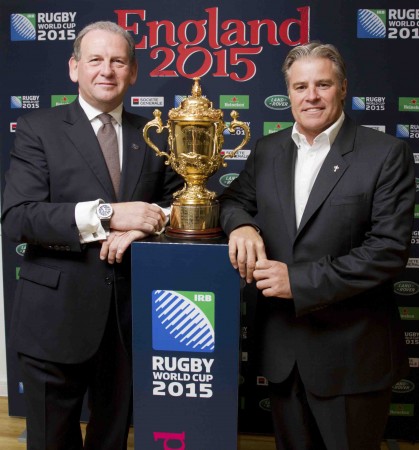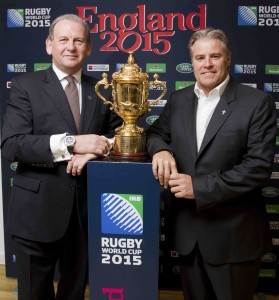By Owain Jones, Editor, Rugby World
TODAY MARKS three years to the kick-off of the 2015 Rugby World Cup in England. With that timely milestone, those tasked with bringing the tournament to millions of rugby fans convened at Webb Ellis House, Twickenham, to give the public an update on progress towards the world’s third biggest sporting event. In a frank and wide ranging discussion, several topics were discussed.
Using the Olympic Stadium
With the nation still glowing after a phenomenally successful Olympics and Paralympics, England 2015’s chief operating officer Ross Young stated that the organizing committee was having ongoing discussions about the viability of hosting World Cup games at the iconic Olympic Stadium. “We would be mad not to include it as part of our thinking. Unfortunately there’s still a bit of uncertainty about what exactly is going to happen with regard to full-time landlords for Olympic Park, but we have engaged with the London Legacy Development Corporation from the very early part of this year.”
Taking the World Cup to the North
With Stuart Lancaster, Ian Ritchie and Bill Beaumont all hailing from Yorkshire and Lancashire, there is support from within the RFU to ‘do the right thing’ and attract fans from outside rugby’s traditional outposts, with a particular onus on showcasing the sport in the North. Taking a home Test away from South West London has also been mooted for the first time since Old Trafford hosted an England international in 1998. Discussing the matter, England 2015 chairman Andy Cosslett said. “There is a tremendous appetite for making sure this World Cup gets to as many corners of the country as we can take it. Taking it out of the traditional rugby strongholds, where we are fighting the battle against Premier League football teams is a priority. If we’ve done our job properly we’ll engage the whole population of England. ”
Ticketing policy
ER 2015 has guaranteed the IRB a profit of £80m, and the organisers admitted the had targeted at least a £100m profit. To achieve this, they will have to shift 2.9m tickets, matching, or exceeding the near full occupancy rates achieved at 2007 and 2011 World Cup. This has resulted in only Twickenham, Welford Road and Kingsholm being considered among traditional rugby grounds. An existing shortlist of 20 stadiums will be whittled down to 10 or 11 in the next month. It was also confirmed that the Millennium Stadium would host matches with Wales playing at least two matches in Cardiff.
Change at the top
Paul Vaughan, the former Chief Executive was surprisingly replaced in his role by Debbie Jevans, the former Director of Sport for Locog in early September, and Cosslett explained that Jevans was installed as the new CEO due to the unique experience she gained at London 2012. “We had a very strong experience in rugby within the team, we had event management experience but we didn’t have the dimension that Debbie brings which was the exposure to other sports and the level of expertise you will only find with something of the magnitude of the Olympics and Paralympics. In every respect she brings new value to the team that Paul wasn’t in a position to do because he hasn’t got that experience.”







